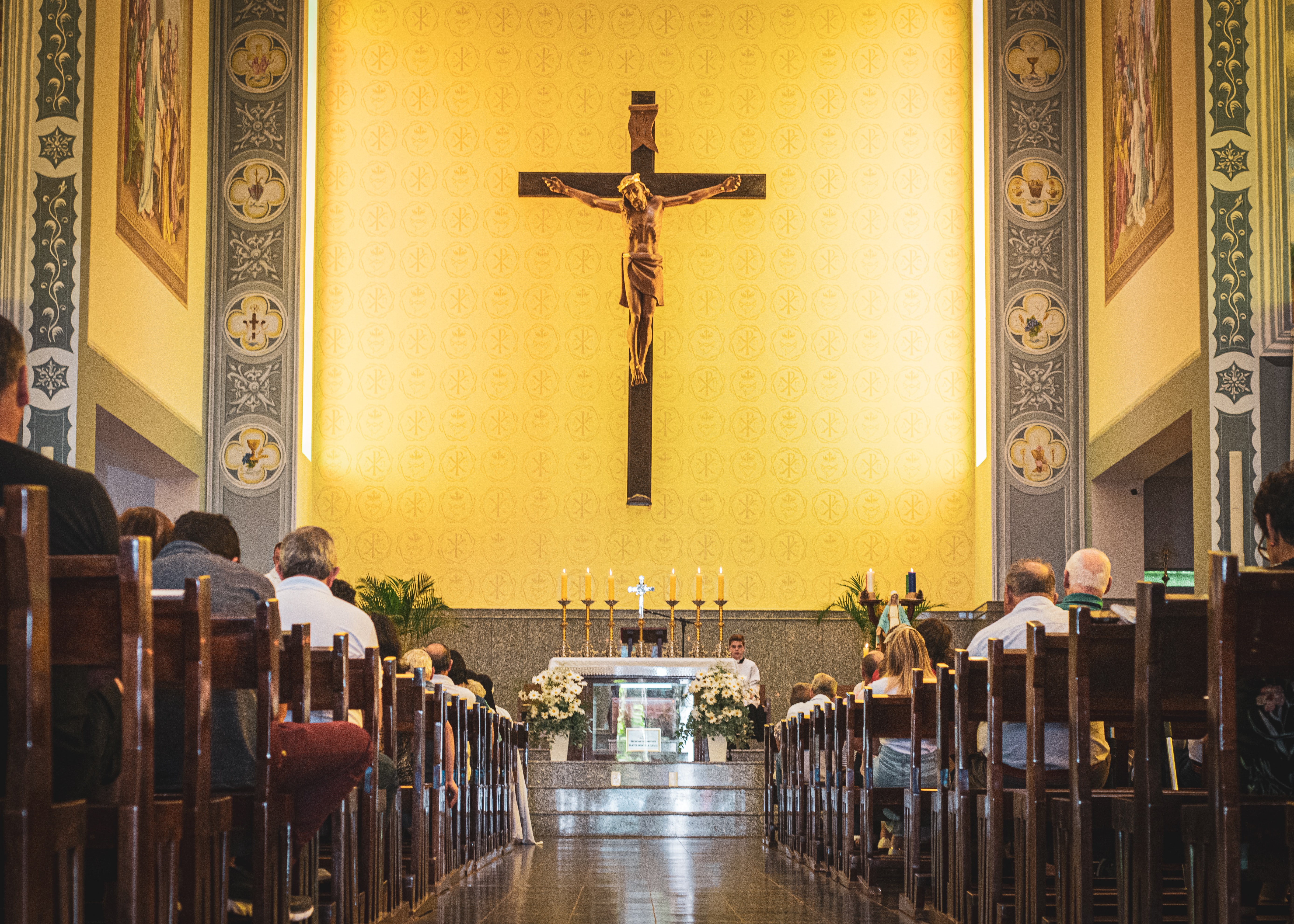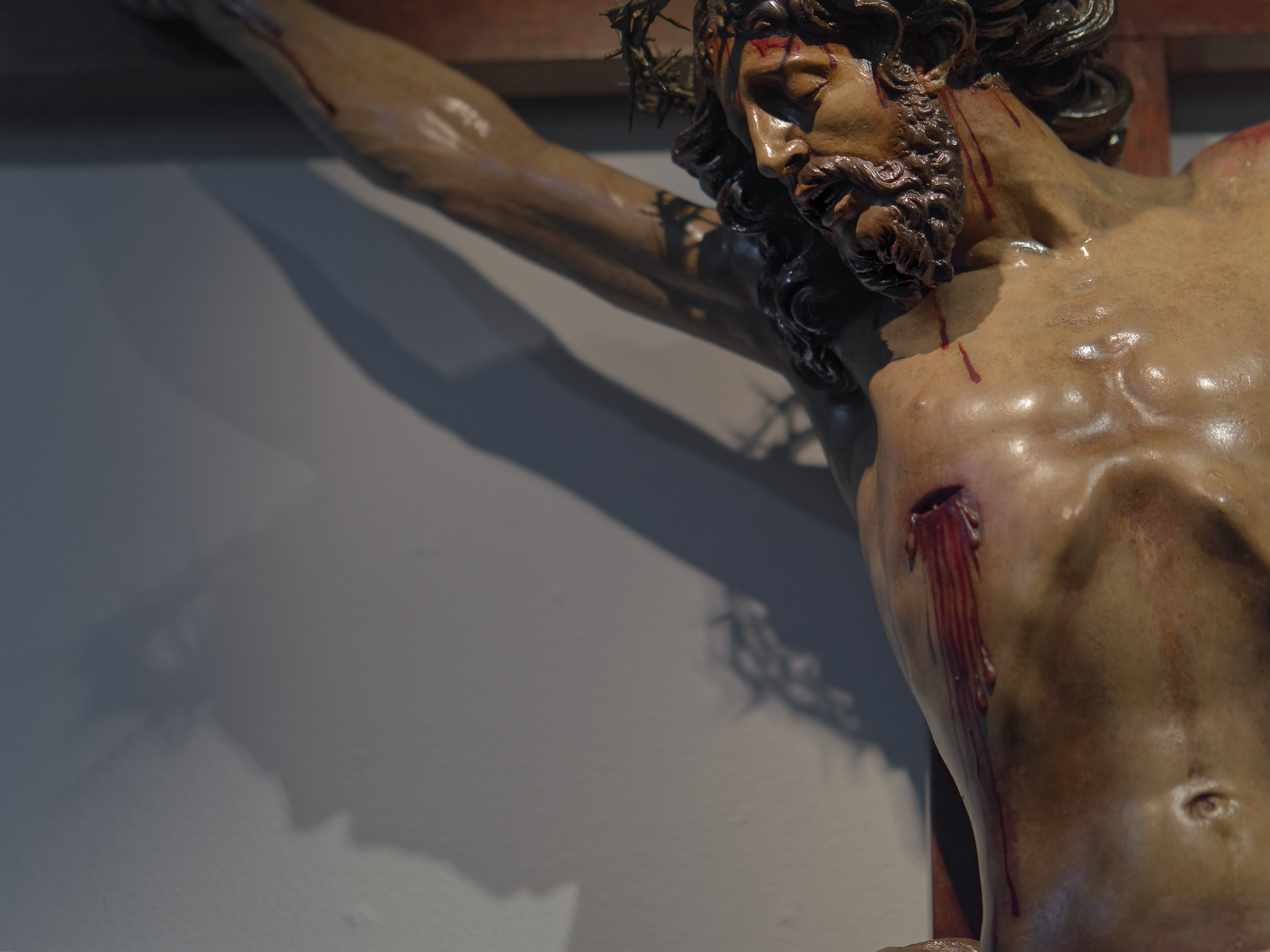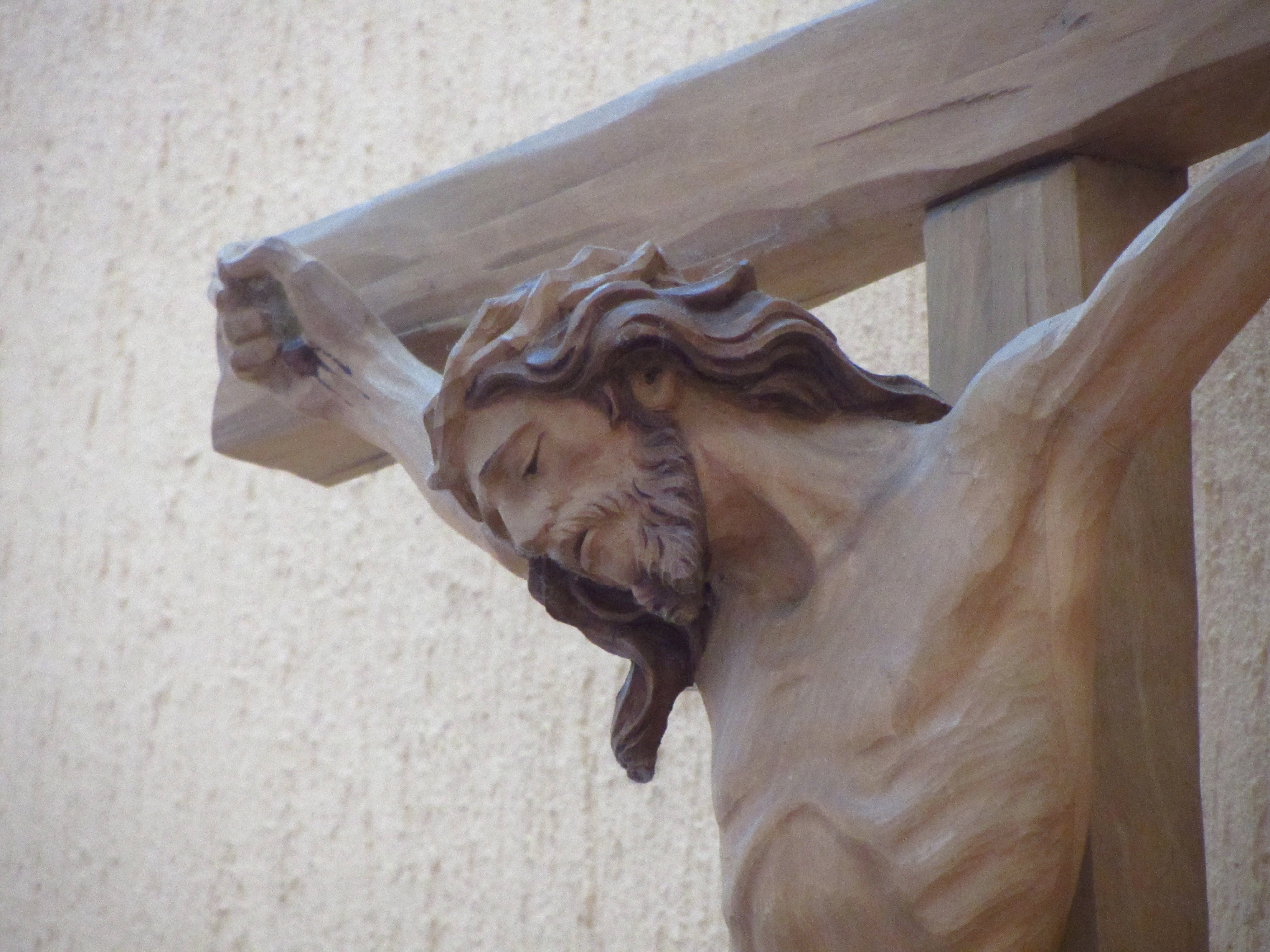“O Wisdom of our God Most High, guiding creation with power and love: come to teach us the path of knowledge!”
I never knew my maternal grandfather; he died a year and a half before I was born. But I have learned the stories about him: how he lied about his age so he could join a brother in coming to America; how he drove an ambulance in France for the U.S. Army during World War I; how he, just like the usual Greek stereotype, owned a “greasy spoon” restaurant; how he was an older man when he married the feisty Sicilian woman who was my grandmother. It’s a little funny how, my whole life, I’ve been asked, “So, you’re Greek?” and I’ve always said, “Why, yes, on my mother’s side.”
Yes, people make assumptions (for example, “Can anything good come from Nazareth?”) when they see that my last name is a Greek word (which means “fruit,” by the way). So I have to explain that I’m Polish on my father’s side, but I have no idea how a Polish family took a Greek word for their surname. I did know my grandfather on that side, perhaps the kindest and most generous man I’ve ever known. But he was also opinionated, opportunistic, and an alcoholic.
We can’t choose our ancestry, and yet it is very important in our lives because we are the culmination of it; it is the foundation of who we fundamentally are. Both Matthew and Luke use a genealogy of Jesus to show the importance of ancestry, especially how Jesus was the culmination of Old Testament prophecies and covenants, putting him in direct line with Abraham, Isaac, Jacob, Judah and King David.
No, we can’t choose our ancestors, but today’s Gospel shows that God can and does do that choosing. And for Jesus, as well as for us, that ancestry chosen by God contains both the faithful and the sinner. Judah, as the First Reading tells us, may have been destined for greatness, with kings as descendants; and he may have saved his brother Joseph from their other brothers’ wrath, but he also sold Joseph into slavery. Jesus is considered a descendant of David, but he’s also a descendant of Ahaz, the guy who wouldn’t listen to Isaiah about asking the Lord for a sign. And God, in his infinite wisdom, used them all to fulfill his plan. His promises to Abraham, Jacob, David, and even Ahaz, are fulfilled in the birth of Jesus, the Messiah.
I began this reflection with today’s “O antiphon,” the ancient exhortations the Church has used since the eighth century to accompany the Magnificat canticle of Evening Prayer from December 17-23. As the U.S. Conference of Catholic Bishops says on its website, the antiphons “are a magnificent theology that uses ancient biblical imagery drawn from the messianic hopes of the Old Testament to proclaim the coming Christ as the fulfillment not only of Old Testament hopes, but present ones as well.” And today, when we say Come, O Wisdom, we know that that Wisdom is Jesus Christ, our very Lord and Savior. Christmas is just a week away: Come, Lord Jesus, Come!
“¡Oh Sabiduría de nuestro Dios Altísimo, que guías con poder y amor la creación: ven a enseñarnos el camino del conocimiento!”
Nunca conocí a mi abuelo materno; murió un año y medio antes de que yo naciera. Pero me han contado sobre su historia: como mintió de su edad para poder unirse a un hermano para venir a los Estados Unidos; cómo condujo una ambulancia en Francia para el ejército de los Estados Unidos durante la Primera Guerra Mundial; cómo él, al igual que el estereotipo griego habitual, era dueño de un restaurante de “cuchara grasienta”; cómo era un hombre mayor cuando se casó con la fuerte mujer siciliana que era mi abuela. Es un poco divertido cómo, toda mi vida, me han preguntado: “Entonces, ¿eres griego?” y siempre he dicho: “Pues sí, por parte de mi mamá”.
Sí, la gente hace suposiciones (por ejemplo, “¿Puede salir algo bueno de Nazaret?”) cuando ven que mi apellido es una palabra griega (que significa “fruto”). Así que tengo que explicar que soy polaco por parte de mi padre, pero no tengo idea de cómo una familia polaca tomó una palabra griega como apellido. Conocí a mi abuelo por ese lado, quizás el hombre más amable y generoso que he conocido. Pero también era obstinado, oportunista y alcohólico.
No podemos elegir nuestra ascendencia, y sin embargo es muy importante en nuestra vida porque somos la culminación de ella; es la base de lo que somos fundamentalmente. Tanto Mateo como Lucas usan una genealogía de Jesús para mostrar la importancia de la ascendencia, especialmente cómo Jesús fue la culminación de las profecías y pactos del Antiguo Testamento, poniéndolo en línea directa con Abraham, Isaac, Jacob, Judá y el rey David.
No, no podemos elegir a nuestros antepasados, pero el Evangelio de hoy muestra que Dios puede y hace esa elección. Y para Jesús, como para nosotros, esa estirpe escogida por Dios contiene tanto al fiel como al pecador. Judá, como nos dice la Primera Lectura, pudo haber estado destinado a la grandeza, con reyes como descendientes; y pudo haber salvado a su hermano José de la ira de sus otros hermanos, pero también vendió a José como esclavo. Jesús es considerado descendiente de David, pero también es descendiente de Acaz, el tipo que no escuchó a Isaías acerca de pedirle una señal al Señor. Y Dios, en su infinita sabiduría, se sirvió de todos ellos para cumplir su plan. Sus promesas a Abraham, Jacob, David e incluso Acaz se cumplen en el nacimiento de Jesús, el Mesías.
Comencé esta reflexión con la “O antífona” de hoy, las antiguas exhortaciones que la Iglesia ha utilizado desde el siglo VIII para acompañar el cántico Magnificat de la oración de la tarde del 17 al 23 de diciembre. Como dice la Conferencia de Obispos Católicos de Estados Unidos en su sitio web, las antífonas “son una teología magnífica que usa imágenes bíblicas antiguas extraídas de las esperanzas mesiánicas del Antiguo Testamento para proclamar la venida de Cristo como el cumplimiento no solo de las esperanzas del Antiguo Testamento, sino también del presente.” Y hoy, cuando decimos Ven, oh Sabiduría, sabemos que esa Sabiduría es Jesucristo, nuestro mismo Señor y Salvador. Falta una semana para la Navidad: ¡Ven, Señor Jesús, ven!
 Mike Karpus is a regular guy. He grew up in Michigan’s Upper Peninsula, graduated from Michigan State University and works as an editor. He is married to a Catholic school principal, raised two daughters who became Catholic school teachers at points in their careers, and now relishes his two grandchildren, including the older one who is fascinated with learning about his faith. He also has served on a Catholic school board, a pastoral council and a parish stewardship committee. He currently is a lector at Mass, a Knight of Columbus, Adult Faith Formation Committee member and a board member of the local Habitat for Humanity organization. But mostly he’s a regular guy.
Mike Karpus is a regular guy. He grew up in Michigan’s Upper Peninsula, graduated from Michigan State University and works as an editor. He is married to a Catholic school principal, raised two daughters who became Catholic school teachers at points in their careers, and now relishes his two grandchildren, including the older one who is fascinated with learning about his faith. He also has served on a Catholic school board, a pastoral council and a parish stewardship committee. He currently is a lector at Mass, a Knight of Columbus, Adult Faith Formation Committee member and a board member of the local Habitat for Humanity organization. But mostly he’s a regular guy.
Feature Image Credit: GidonPico, pixabay.com/photos/dead-sea-caravan-camel-red-brown-1930735/












